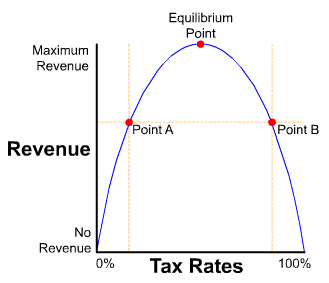- Thread starter
- #81
Please tell me if you're talking about the standard Laffer model----becuase if you are then you have to not only quantify the taxation rates implied by "suppressing the market price of labour by dictating wages", but also quantify the resultant implied revenue that results if we move "productivity away from the labourer to the government".
Sure we all know it can be done, but the big question is whether we can do it without laughing hysterically.
Say you're a doctor and a doctor is worth $500,000. If the government taxes you at 90% or the government has socialized medicine and will not pay you more than $50,000 a year (tax free!) the effects are the same.
Right, crappy socialized medicine either way
Thanks for the diversionary observation Frank.

